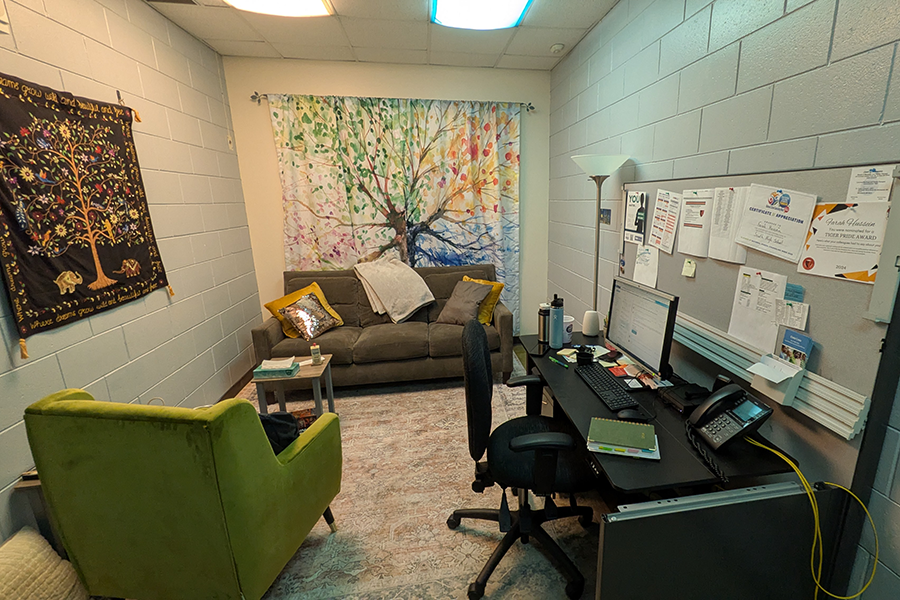South students would never be required to take CIS (College in the Schools) or PSEO (Post Secondary Enrollment Options) classes. This level of coursework is reserved for students who are academically qualified and committed to greater challenges for success beyond the regular high school level. Yet South requires Advanced Placement Human Geography and United States History classes for all students.
The College Board claims that through AP, students will become well versed in enriching and deep discussion, college writing, and the challenges of critical thinking and a heavy workload. The South AP experience bears little resemblance to this vision of rigor and success.
In my APUSH class, I sat through numerous single-voiced discussions and observed few students consistently completing their homework. I was hugely disappointed at the amount of cheating I witnessed, especially before tests. Many students demonstrated little motivation to put in the extra work expected in AP classes.
Junior Amirah Ellison witnessed similar behavior in her APUSH class. Ellison explained, “There are certain people [who] if they’re not at that level, they shouldn’t be put there. It’s not fair to them and it’s not fair to the kids at that higher level.”
The point of Advanced Placement is to provide students with a college experience and to give them a means to earn college credit in high school. These goals are compromised by the lower level of curriculum that exists in required AP classes.
Advanced Placement requirements also take a toll on students who would challenge themselves with advanced courses regardless of the requirement. I found myself less prepared for the AP exam because I hadn’t always been exposed to AP level curriculum. Ellison agreed. “I would have done better [on the test] but because the curriculum of the class, it made it difficult to learn much,” she explained.
In my APUSH class, the students prepared to offer their individual perspectives were frequently outnumbered by the students who disrupted or stagnated the class with their lack of effort.
There is amazing opportunity to transplant South students’ unique experiences into required AP classes. “We have multiple learners, different kinds of intelligence, and taking a test is one way to look at those things. I could have wonderful writers and thinkers in your class and the test will never reflect that,” pointed out AP Language and Composition teacher Tanya Hodge. While this is absolutely true, students aren’t properly taking advantage of this opportunity.
While the diversity of culture, thought, and experience in required AP classes is ideal, it is unrealistic to expect every student to rise to the challenge given current conditions at South. Not all South students are prepared for college level challenges at the time they are faced with APUSH.
Junior Alex Boutrous transferred to South from Saint Paul Academy, one of the most prestigious college-prep schools in the country. SPA does not offer AP classes. “At SPA, classes were structured to be challenging enough that they encompassed and went far beyond the AP curriculum,” said Boutrous. But at South, she said, “[Teachers of required AP classes] can’t require college level work. [They are] not going to get the quality of work that you would when you’re expecting college level performance.”
It is imperative that the South administrative and teaching staff pay special attention to preparing all South students to reach their academic potential. They have attempted to do this through requiring AP classes and they have been unsuccessful.
Requiring AP classes is a poor means to achieve a good goal. The day students walk into sophomore APUSH should not be the first day they are expected to be self-motivated and competent students. There is too much tolerance for lack of effort, cheating, late work, and poor attendance in general courses. Required AP classes don’t require us to work at AP standards and no student can be expected to succeed while this is the norm. A better option would be to raise standards in all general courses and encourage students to individually accept the challenge of advanced classes when they are prepared to do so.






